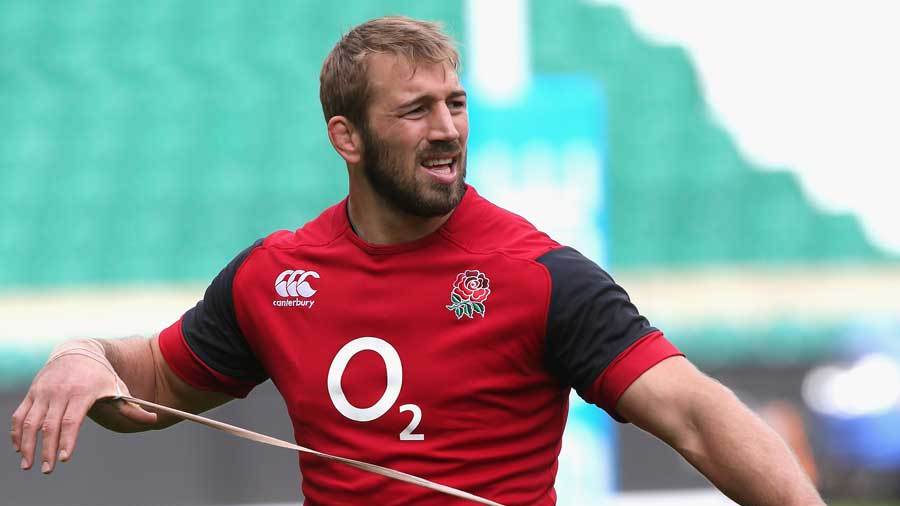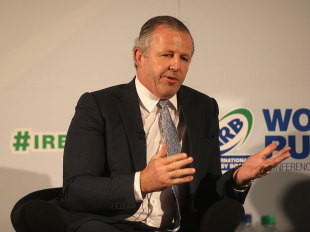|
England
Player burnout in the spotlight
Tom Hamilton at the IRB World Rugby Conference
November 17, 2014

Chris Robshaw faces a gruelling schedule with club and country over the next couple of years © Getty Images
Enlarge
Central contracts are key to avoiding player burnout according to Sean Fitzpatrick and Agustin Pichot. The issue of player burnout normally raises its head in the run up to World Cups as the game's top players in the northern hemisphere suffer a relentless schedule where they play non-stop for the best part of 21 months. For an individual like England captain Chris Robshaw, he will play this season with Harlequins before then going into international camp on June 1 and will then, if picked, play in the World Cup before returning to club duty, continuing until May 2016 and then potentially touring to Australia with England. Fitzpatrick: England must front up
Sean Fitzpatrick speaks in London © Getty Images
The debate also links in with the ongoing discussions over the global calendar and how best to accommodate the needs of both the northern and southern hemispheres. While former Argentina scrum-half Pichot hopes there will be progress over that in the next couple of months, ex-New Zealand captain Fitzpatrick holds the All Blacks as the blueprint for player welfare where the country's best players are on deals with the New Zealand Rugby Union. "Definitely in the northern hemisphere it [player burnout] is an issue," Fitzpatrick said. "The player burnout is an issue in terms of the number of games Chris Robshaw has to play, whether it's European, Premiership or Test rugby. It's a huge ask and the club's owners will demand they keep on playing." He added: "If you are a professional rugby player, the place you want to play rugby, if not in Japan where you play very little rugby, is somewhere like New Zealand where you get looked after. The premium product is the All Blacks and then it works through." When asked what the answer is to burnout in the northern hemisphere, Fitzpatrick answered: "Take England for example, does the RFU step in and buy the clubs? Maybe that's a way but it's food for thought." And Pichot - who is an IRB Council member for Union Argentina de Rugby and has spearheaded the country's drive to get a Super Rugby franchise for the 2016 season - hopes to have the country's best players on central contracts. Pichot said: "The most important thing is we have to take care of the athletes, the players cannot be playing and getting burnt out and getting tired and playing 30 or something games of the intensity which is happening now. "When you have centralised contracts, everything is much easier. You have your international team as your most important team and then you build the whole structure. That doesn't mean only a few players make money and play fewer games, it means you have a great ITM Cup for example or a good Currie Cup. "The difficulty is when you have private equity against political decisions and that's where the problems start. In 1995 the box was opened and now we are suffering from that problem." For the IRB's Mark Egan, its head of competitions and performance, he said the issue of player burnout is high on its agenda. Egan said: "During the medical conference we had an expert group meet on Friday called the 'Game load expert group' to look at that issue. IRPA the International Rugby Players' Association are also involved in that. "We place player welfare very high on our agenda, we've implemented a lot of new educational resources working with IRPA - our concussion protocols as well. We see it as a priority and I think it's a matter for the unions and the professional clubs to manage the players effectively and listen to the players in terms of their needs and wants. "It's an ongoing piece of work for everyone to put player welfare at the forefront of everything we do." © ESPN Sports Media Ltd Tom Hamilton is the Associate Editor of ESPNscrum.
|
Live Sports
Communication error please reload the page.
-
Football
-
Cricket
-
Rugby
-
- Days
- Hrs
- Mins
- Secs
F1 - Abu Dhabi GP
Abu Dhabi Grand Prix December 11-131. Max Verstappen ()
2. Valtteri Bottas (Mercedes)
3. Lewis Hamilton (Mercedes)
4. Alexander Albon ()
5. Lando Norris ()
6. Carlos Sainz Jr ()
-
ESPNOtherLive >>
Snooker - China Open
Tennis - Miami Open

